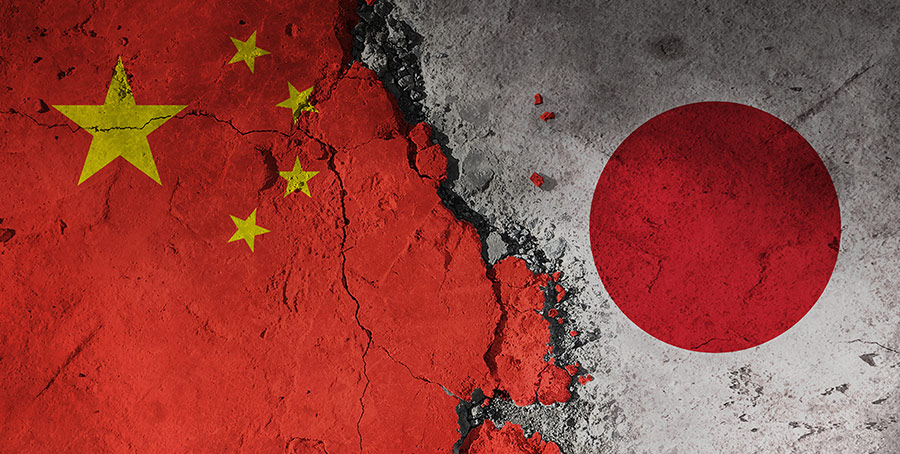- China’s harassment over the discharge of treated wastewater into the ocean is intensifying. Performances to prove patriotism, such as boycotts of Japanese products and destruction of Japanese restaurants, are spreading.
- In particular, “telephone call” attacks, in which nuisance calls are made in an organized manner, are an unprecedented phenomenon, and behind these attacks is the growing influence of popular SNS accounts called “Jidai” (self-identified media), which spread false rumors that are discouraged by the authorities.
- In September, there are events that may stimulate anti-Japanese momentum, such as “Anti-Fascist Anti-Japanese War Victory Day” (3rd) and “National Shame Day” (18th), and there is concern that the harassment may escalate.
(Kaori Fukushima: Journalist)
China protested violently against Japan’s August 24 discharge of treated water from the Fukushima Daiichi Nuclear Power Plant’s ALPS system, and immediately imposed a total embargo on Japanese marine products, including processed products*1. 1 Not only that, but in a kind of “anti-Japanese campaign,” the official media began to bash Japan on the issue of “nuclear waste water” at the same time. This was the cue for the people’s “anti-Japanese currency movement” (a boycott of Japanese products) and “phone calls” (organized protests) to restaurants, businesses, and public facilities in Japan related to Fukushima. Furthermore, stone throwing and harassment of Japanese embassies and Japanese schools, as well as performances by Chinese owners of Japanese restaurants who vandalize their own restaurants to prove their patriotism, have occurred throughout the country.
It is unclear how far these overreactions will escalate in September, which for China includes “Anti-Fascist Anti-Japanese War Victory Day” (3rd) and “National Shame Day” (18th, the day the Manchurian Incident broke out). The Japanese government said on April 29 that China will file a complaint with the World Trade Organization (WTO) against the embargo. However, since the issue is not really an economic one, there may be a limit to the effectiveness of this action on the part of the Chinese.
So what is the essence of the problem? Why are China and the Chinese overreacting to “nuclear waste water” to this extent?
Whenever an American is abducted, the U.S. immediately takes countermeasures to lure the abductee into diplomatic negotiations to get the victim back.
In Japan, where nearly 800 people may have been abducted according to a survey by a private organization, only five have been recovered.
We would like to ask the Foreign Ministry and the Foreign Minister (and even the Prime Minister), who oversees the ministry, about their inability to retrieve the innocent people taken away in violation of national sovereignty, and whether they may have mishandled the issue at the outset.
Although we will not deal with the abduction issue here, the lessons learned from the fact that the issue has yet to be resolved must be applied, or we will only continue to make mistakes and damage the national interest.
What are the lessons learned from the abduction issue?
It is that expressing regret and giving candy balls while negotiating are unlikely to lead to a solution to a totalitarian country that does not need to consider the will of its people.
Even when the other party says or does something unreasonable or detrimental on political or economic issues, Japan (the government) simply repeats “regrettable,” as if it were a fool, and is even ridiculed as a “regrettable gun.
When China imposes sanctions that are considered unreasonable or contrary to the national interest, even countries with much smaller national power than Japan, not to mention countries belonging to the G7 such as the U.S. and the U.K., often respond with statements of condemnation as well as countermeasures of equal or even higher value. For example, if a person is detained for espionage, the country may take action against him or her.
For example, when a person is detained for espionage, the first step is to condemn the person, but then, around the same time, to detain someone else engaged in similar work.
When a consulate-general is closed for some reason, we close the consulate-general that will be more damaging to the other party, and so on.
Even countries with only a few million people will sink other Chinese ships in order to recover a person or ship captured by a Chinese fishing boat.
A nation is defined as a territory, a people, and a sovereignty (defender of sovereignty), and has nothing to do with the size of the country. Every nation is desperate to do its utmost against any infringement of its national interests and sovereignty.








